Does government have the right to punish individuals who have broken no laws on the basis of their political views? Are private companies allowed to discriminate against customers on the basis of their nationality alone? For the past two years, the answer from western governments to both these questions has been yes — if they have a connection to Russia.
In the immediate aftermath of Vladimir Putin’s invasion of Ukraine in February last year, then British prime minister, Boris Johnson, called the war “a tragedy for Ukraine, and a tragedy for Russia.” Directly addressing the people of Russia (and speaking in surprisingly well-accented Russian), Johnson said: “I do not believe this war is in your name.” A flurry of economic sanctions against the Putin regime by the US, UK and EU followed — including personal sanctions freezing assets and banning travel for a named list of close Kremlin allies. The sanctions’ stated aim was “encouraging Russia to cease actions which destabilize Ukraine, or undermine or threaten the territorial integrity, sovereignty or independence of Ukraine.”
Every London financial institution has vetted and purged their client lists of people of Russian origin
But somehow ordinary Russians, many of them exiles from the Putin regime, have also found themselves caught in the net. The assets of thousands of small investors held in the Brussels-based clearing system Euroclear found their assets summarily frozen en masse. The bank accounts of Gift of Life, a well-established London-based medical charity that has raised millions for the treatment of Russian children, were closed. Every London financial institution, from mortgage lenders to banks and insurers, for instance, has aggressively vetted and in many cases purged their client lists of people of Russian origin — even those who had been British citizens for years.
Instead of welcoming and encouraging well-educated and wealthy Russians fleeing the regime to move to the West, visas have become exponentially harder to obtain. Petr Pavel, the Czech president, has called for all Russians living in western countries to be “monitored” by security services and alluded to the internment of Japanese people in the US during World War Two. The hunt for Putin cronies has widened from Kremlin–connected Russian oligarchs to include distrust and suspicion of pretty much all Russians.
This week Britain’s High Court will rule on the case of Graham Phillips, a former civil servant who has lived in Russian–occupied Donbas for some years and who has become notorious for his video blogs reporting the war from the Russian point of view, including from the front lines. In July last year, the Foreign Office ruled that Phillips should be sanctioned for “supporting the Russian war by producing… propagandist video content,” freezing his bank accounts and preventing him from paying his mortgage without applying for special license from the government (which he refuses to do).
I find Phillips’s pro-Kremlin views obnoxious and his reports blatantly one-sided. But being pro-Russian is not a crime in British law. The UK is not at war with Russia, nor is the Russian state a designated terrorist organization. In a democracy, people should be free to be wrong. As the barrister Joshua Hitchens argued in a written submission to the court: “The power the [Foreign Secretary] claims to possess is expansive and unprecedented in modern British political and legal history.”
The crucial point in Phillips’s case against the British government is the question of the fundamental democratic values which Britain claims to be defending — and for which Ukrainians are fighting and dying. Collective punishment is profoundly alien to Western legal culture, as is punishing people simply on the basis of their views, nationality or ethnicity. At a time when praising and loudly demonstrating for an actual terrorist organization — Hamas — takes place on the streets of London with apparent impunity, how does the government justify punishing people for simply being Russian or, in Phillips’s case, for supporting Russia?
None of the current raft of sanctions — whether against Russian state assets, bona fide Kremlin kleptocrats or ordinary Russians — have, as yet, any basis in any national or international law. That is why Russian-connected bank accounts, businesses and property are technically frozen rather than confiscated. The lion’s share of these assets — some $400 billion — belongs to the Russian Central Bank. If an international legal mechanism for transferring these assets can be found, they could be sent to Ukraine and utterly transform that country’s reconstruction. That would indeed be karmic justice.
As for frozen Russian private assets, there’s an urgent need to define just what we in the West are trying to achieve in holding on to them. A few cases are clear-cut instances of directly punishing members of the Kremlin apparat, for instance the Russian propagandist Vladimir Solovyov, who as one of the leading public proponents of the war undoubtedly has blood on his hands. His Lake Como villa has been justly seized by Italian authorities.
But what about other wealthy Russians who either made lives in the West before the war, or fled in its aftermath? These are exactly the people that Russia needs to rebuild a post-Putin future. “Europe will be safe only when Russia becomes a truly free and peaceful country,” writes the leading Russian economist Sergei Guriev, now a professor of economics at Sciences Po in Paris. “This is a difficult mission that only anti-Putin Russians themselves can accomplish. They bear a responsibility for not having achieved this so far, but they must be supported if they are to succeed in the future.”
Putin has for years been encouraging the return of Russian assets to the motherland — a process known as “de-offshoreization.” Wartime sanctions against private Russian citizens are effectively doing Putin’s work for him. Anecdotal evidence from numerous acquaintances suggests that over the past year and a half many Russian high-net-worth individuals who initially fled Russia have returned home, unable to make new lives in the West. The same goes for a swath of the estimated one million middle-class Russians who attempted to rebuild their careers and live in exile in the few places that allow them to reside without visas — Georgia, Armenia, Israel and Turkey. Many have given up and returned to Russia. Hard numbers are difficult to come by, but in June Putin claimed that “half” of the Russians who had left since the war broke out had come back — doubtless an exaggeration, but the scale of the return is nonetheless significant.
As for frozen Russian private assets, we need to define what we are trying to achieve in holding on to them
The most painful way to hurt the Putin regime and damage the Kremlin’s war effort would be to drain Russia of even more of its most talented, highly educated and resourceful people, an asset ultimately far more valuable than all that country’s oil and gas. Currently, we are doing the opposite. The same goes for money. Capital flight from Russia amounted to a staggering $239 billion last year. But thanks to the sanctions-driven isolation of the Russian banking system, that flood has dwindled to a trickle.
Sadly, sanctions have utterly failed to change Putin’s behavior or make any significant dent in the Russian economy or war machine. Russian analysts recently upgraded their forecasts for the country’s economic growth for this year to 2.5 percent — a number most western countries would envy. Putin has earmarked some $110 billion on defense spending for next year — dwarfing western military aid to Ukraine.
The West needs to rethink its sanctions policies, especially those which directly contradict our most basic principles of equality before the law, no punishment without trial and the inviolability of private property. We support Kyiv’s fight because we believe in defending the democratic freedoms for which Ukraine stands. That fight should include defending democracy and freedom at home too.
This article was originally published in The Spectator’s UK magazine. Subscribe to the World edition here.



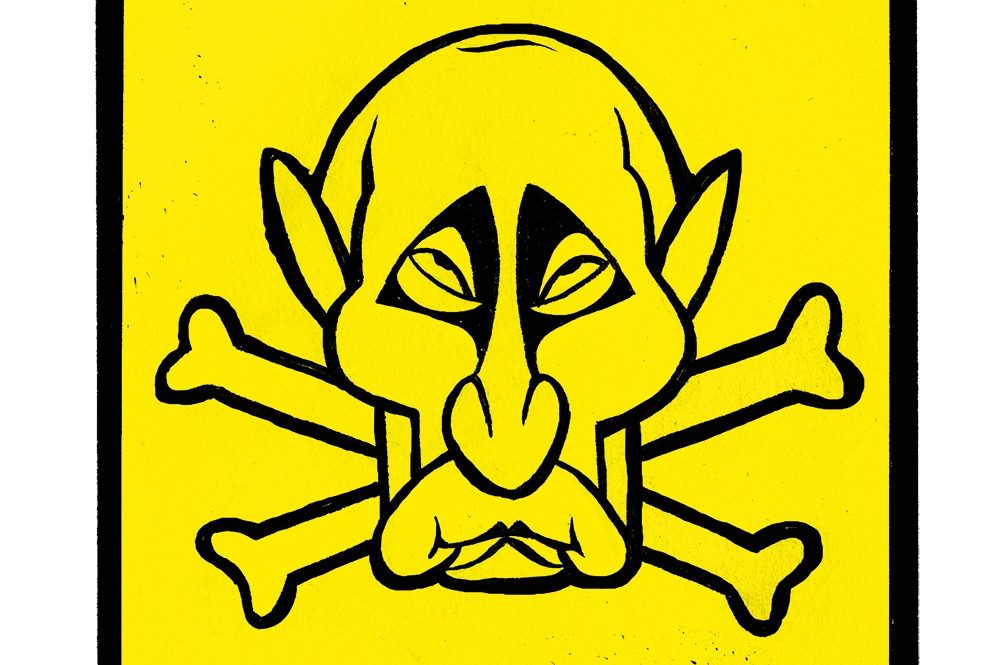






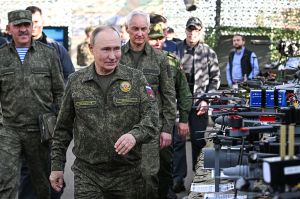
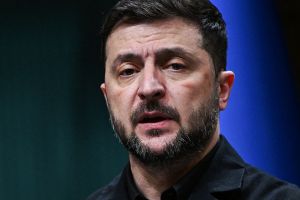
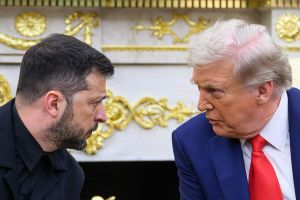




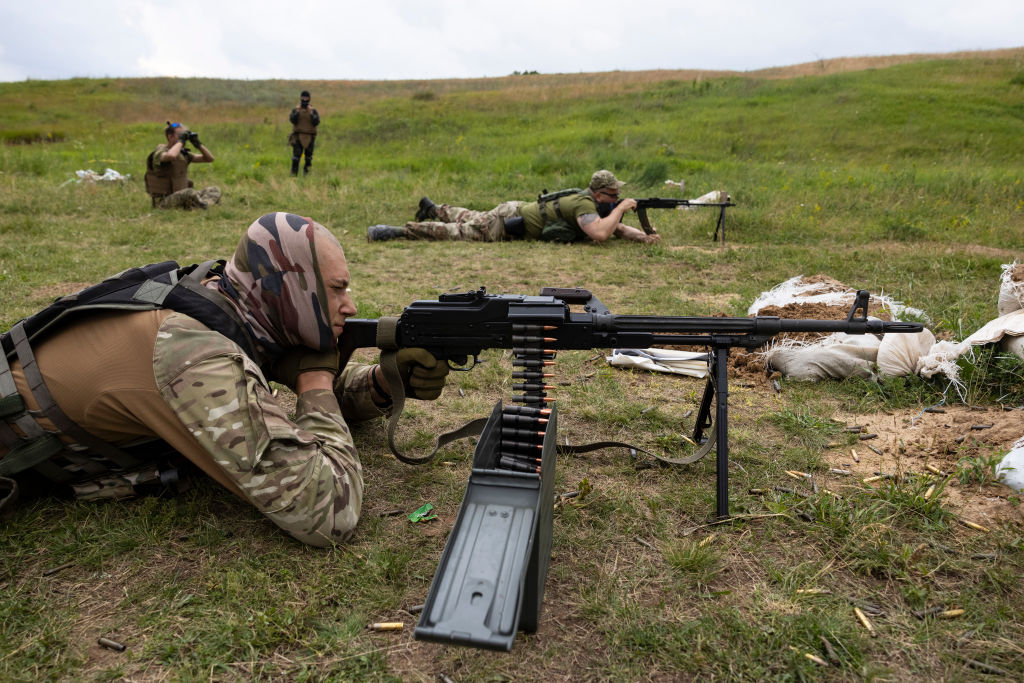








Leave a Reply